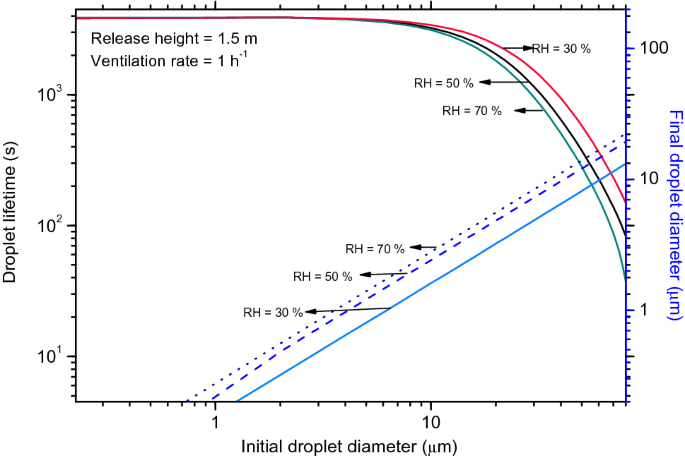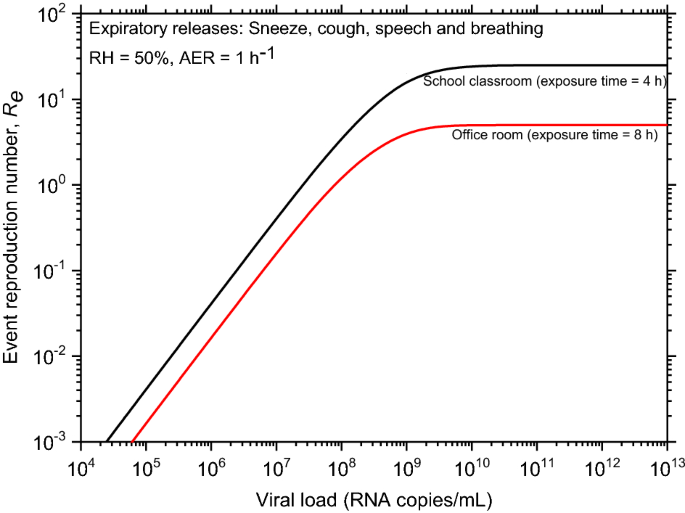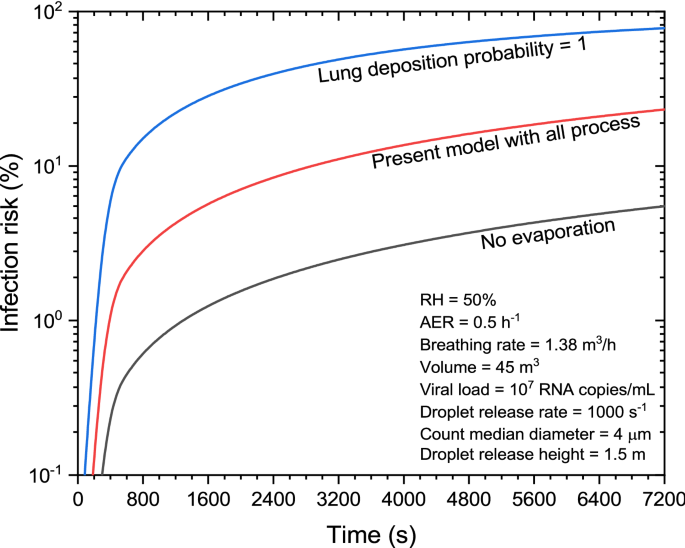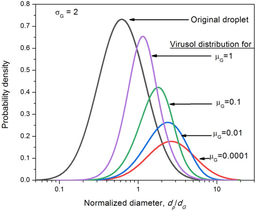A comprehensive modelling approach to estimate the transmissibility of coronavirus and its variants from infected subjects in indoor environments
Published in Sustainability

A central issue in assessing the airborne risk of COVID-19 infections in indoor spaces pertains to linking the viral load in infected subjects to the lung deposition probability in exposed individuals through comprehensive aerosol dynamics modelling. In this paper, we achieve this by combining aerosol processes (evaporation, dispersion, settling, lung deposition) with a novel double Poisson model to estimate the probability that at least one carrier particle containing at least one virion will be deposited in the lungs and infect a susceptible individual.

Multiple emission scenarios are considered. Unlike the hitherto used single Poisson models, the double Poisson model accounts for fluctuations in the number of carrier particles deposited in the lung in addition to the fluctuations in the virion number per carrier particle. The model demonstrates that the risk of infection for 10-min indoor exposure increases from 1 to 50% as the viral load in the droplets ejected from the infected subject increases from 2 × 108 to 2 × 1010 RNA copies/mL.

Being based on well-established aerosol science and statistical principles, the present approach puts airborne risk assessment methodology on a sound formalistic footing, thereby reducing avoidable epistemic uncertainties in estimating relative transmissibilities of different coronavirus variants quantified by different viral loads.

Follow the Topic
-
Scientific Reports

An open access journal publishing original research from across all areas of the natural sciences, psychology, medicine and engineering.
What are SDG Topics?
An introduction to Sustainable Development Goals (SDGs) Topics and their role in highlighting sustainable development research.
Continue reading announcementRelated Collections
With Collections, you can get published faster and increase your visibility.
Reproductive Health
Publishing Model: Hybrid
Deadline: Mar 30, 2026
Obesity
Publishing Model: Hybrid
Deadline: Apr 24, 2026


Please sign in or register for FREE
If you are a registered user on Research Communities by Springer Nature, please sign in